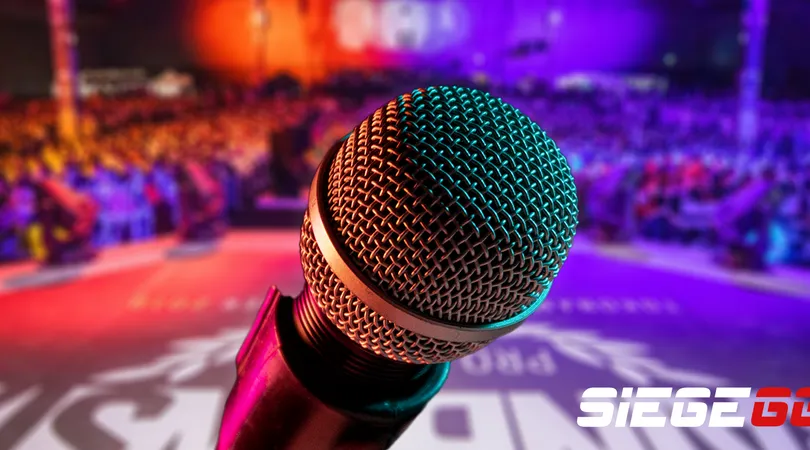
With Rainbow Six Siege recently passing its 4th birthday, I thought it was a good time to look at what we've learned over the past years when it comes to one of the most important parts of esports, casting. During its life Siege has had a variety of casters in its time, ranging from subpar to amazing, depending on who you ask. However, regardless of your opinion, the range of talent we have had allows us to see what works and what doesn't.
For those that are new to esports - What is casting? Well it can be broken down into two types. The first is play-by-play casters, they cover the action, breaking down what is happening on the screen and weaving a story throughout the match. The colour caster also simply known as the analyst, fills in the lull period of the games, explaining the reason behind a players actions rather than describing the action itself. A good caster will inform the audience of exactly what is happening in the game without even looking at the screen. Not only this but it also acts as a translation for new viewers, something which is especially important within Siege. I have been playing this game since the beta more than 4 years ago and yet learn new things all the time. Keeping that in mind, when someone has never experienced Siege before, it can be quite difficult to understand what each operator does, which wall is destructible and generally what the bloody hell is going on. This is where the casters help out, they can explain why players are randomly shooting the wall in prep phase or why each operator is setting up in a certain position. Also it can get viewers caught up on the storyline of the scene, such as roster changes, friends becoming rivals, and new organisations in the esport. I feel Monkeyfist summed it up well
“Casting isn't about telling the audience what is happening on the screen, it's about taking what is happening on the screen and turning it into a story, giving it that extra flair to help conceptualise the drama on the screen whether to improve the experience as a whole or provide context for the casuals who may be more uninformed.”
(Milosh and Mzo casting a 3k by Acez at the Season 8 Finals)
Casting is the equivalent to commentary which is prevalent in most modern day sports. The history of which dates back to the 1920s, with the BBC’s first official sports broadcast of a football (soccer) match between the two English teams Arsenal and Sheffield United. Also in the same decade radio commentary started for Cricket, Horse Racing and Boxing matches, however these didn’t feature live commentary, rather someone at the event was on the phone to the radio host who used the information to piece together what was happening. Cricket commentary also included sound effects to give the illusion that the hosts were at the event, whilst they were sat in the studio. Esports beginnings start 70 years after this, during the late 1990s when the SHOUTcast plugin for Winamp was released in 1998. This is what bred the first casters, short for SHOUTcasters, that got their name from the plug-in. I was unable to find any evidence of the first casted tournament, it seems to have been lost to time. We do know however Esports tournaments existed before this, with the first commonly accepted one taking place at Stanford University for the game Spacewars.
Behind the scenes are the casters’ backbone: the production staff. Whilst these aren’t as forward facing, they are still vital for the stream and the casters. Although there are many parts to the production staff, I want to focus on two main people; the producer, and the spectator. The producer will be talking to the casters mostly during the gaps between matches to tell them what they’re about to bring up. The spectator is controlling what the viewer and the casters see on the screen. In some smaller leagues the caster may also be controlling the camera. Recently YouTuber and former Rogue analyst Reaper created a video on what made Medicz stand out at spectating the OGA Pit minor.
Both of these roles are important as they provide information to the casters. The spectator in game information and the producer on stream information respectively. I was surprised when I talked to the casters that none of them brought this up. A poor spectator means that the casters miss most of the action, leaving play-by-plays having to guess what happened.
In a similar fashion, the production overall is important. If there are constant rehosts, and technical issues then the casters are going to get fatigued. For me personally, the worst production fault that degrades the casting is during an online duo cast, where one is either ahead or behind the other causing for delays in their reactions, completely pulling you out of the action. Although this is usually limited to smaller leagues or the qualifier games that are community streamed, these issues are out of the casters hands and yet lead to an uncomfortable situation for both the audience and the casters themselves.
So, enough of the background, what makes a good caster? Well, I reached out to every caster I knew of to get the experts opinion. Due to the amount of responses I got I have broken it down into sub sections which I feel cover the range of their comments.
Organisation
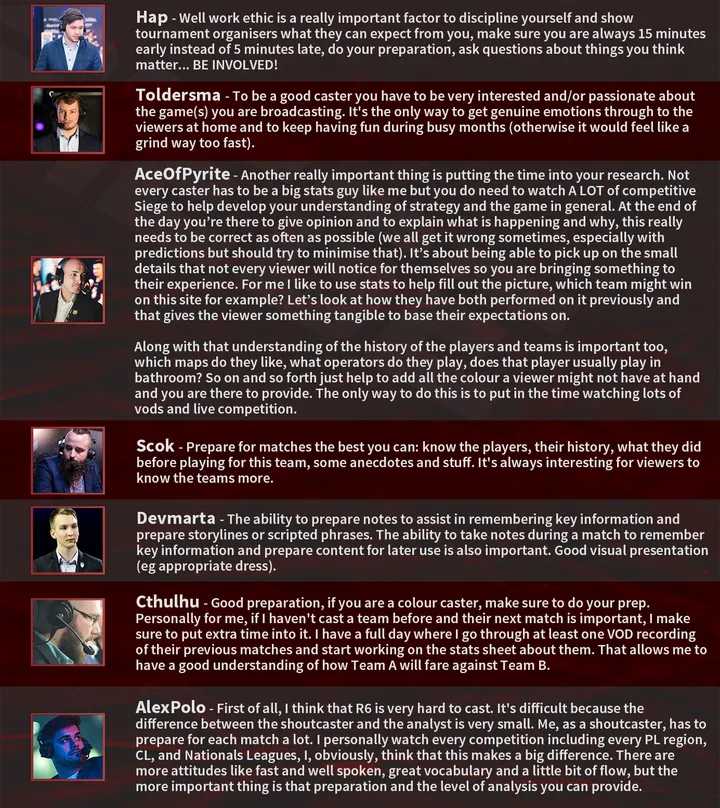
Game knowledge
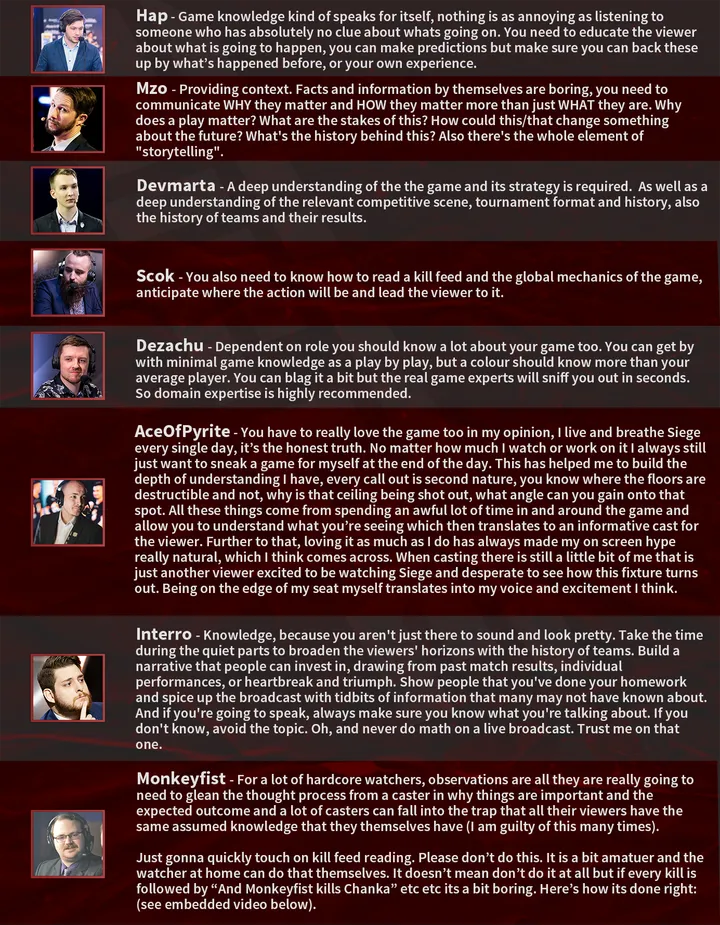
Personality
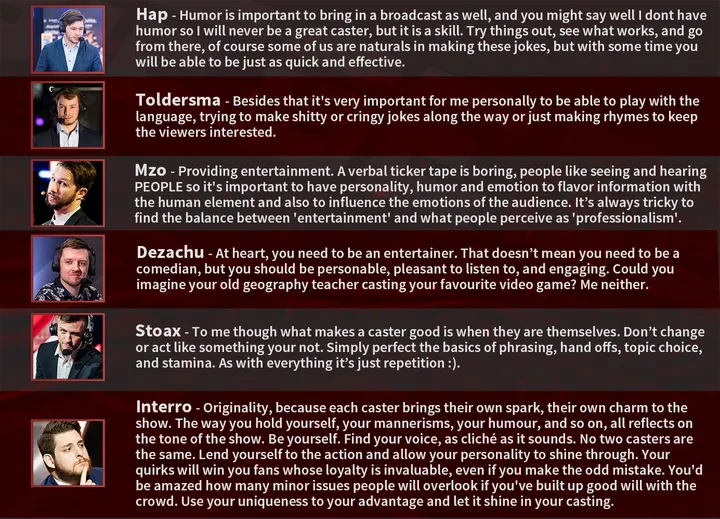
Self Awareness
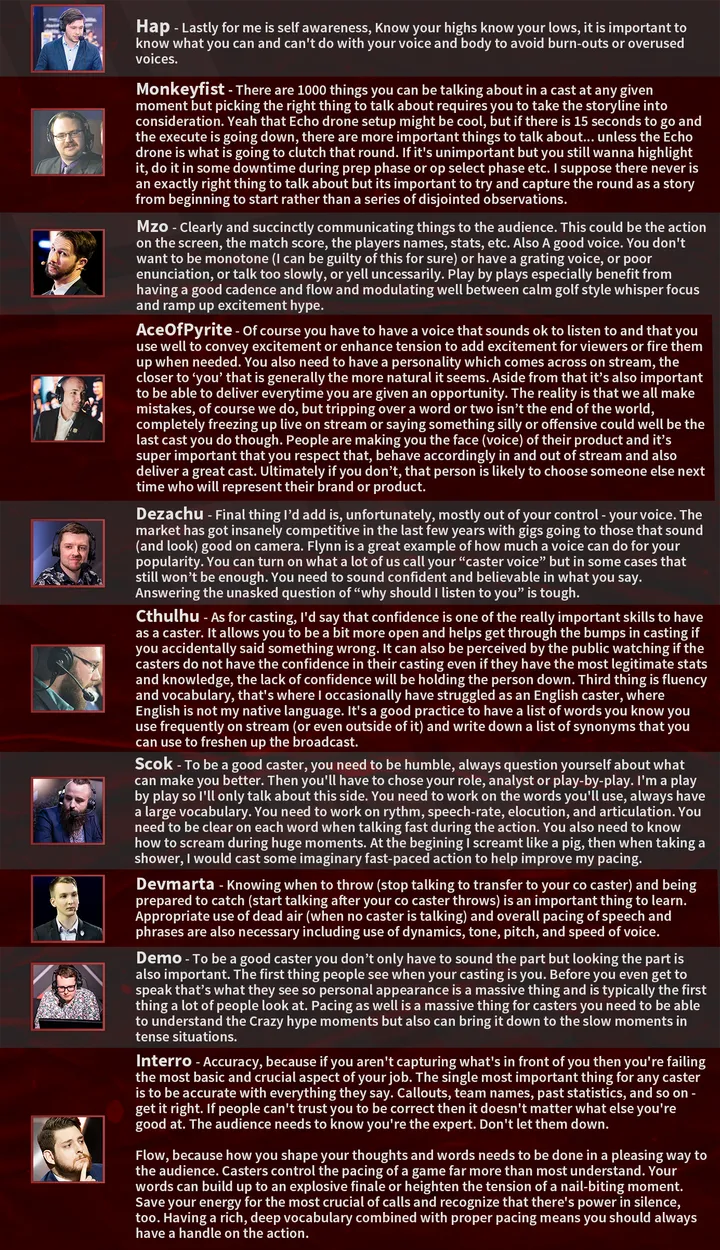
Team relationships
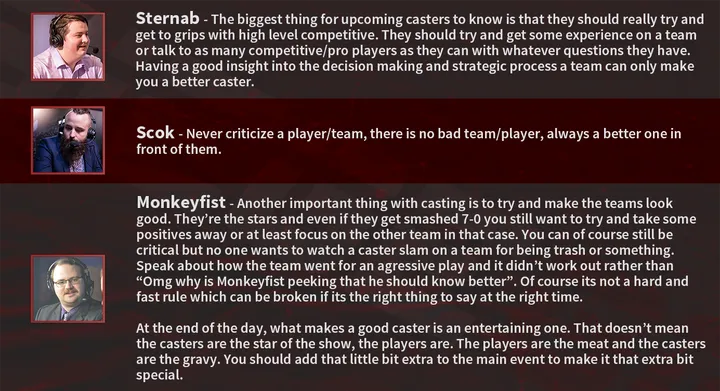
Conclusion
Casting is one of the most sought after role in esports, usually only behind a Pro Player themselves. Due to this, competition is fierce and requires a lot of hard work. It is necessary you sound good, look good, and prepare well. A lot of responsibility is entrusted in a caster and it can be easy to slip up, however over time and with a drive to improve a caster can make top tier gameplay an amazing viewing experience and inject personality into the broadcast.
SiegeGG is supported by its audience. When you purchase through links on our site, we may earn an affiliate commission. Learn more about how readers support SiegeGG.